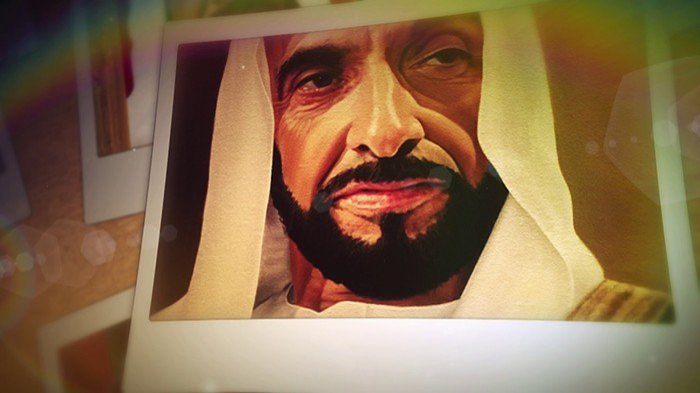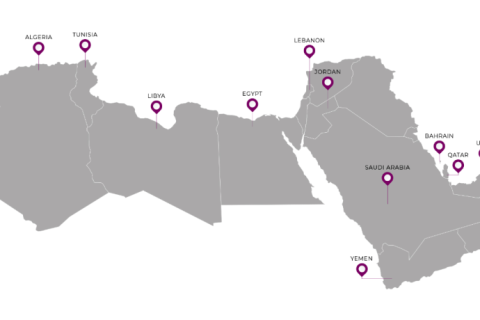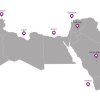Sheikh Zayed bin Sultan Al Nahyan, born in 1918 in Al Ain, was the UAE’s founding father who left behind a legacy of noble values such as equality, tolerance, charity, and generosity that have remained long after his 33-year leadership.
As a man of peace and vision, he promoted the virtues of compromise, reason, and dialogue, in a region troubled by crises and conflicts.
The enduring legacy of Sheikh Zayed, who was blessed with a visionary mind and generous heart, is celebrated to this day while his contributions and initiatives are a reflection of his rare skills as a true leader.
A great leader, respected by rich and poor, and an inspiration to many
Sheikh Zayed always emphasized that the real wealth is not material gain, but his investment in people who would eventually build the future of the nation.
Health, education, and social welfare sectors improved drastically under his leadership and so did the economy.
Sheikh Zayed used oil revenues to further advance the UAE and build a strong economy. Subsequently, the UAE ranked amongst the region’s most economically developed countries and the second biggest economy in the GCC region, after Saudi Arabia.
In August 2017, the President of the United Arab Emirates, Sheikh Khalifa Bin Zayed declared 2018 the Year of Zayed.
2018 marked the 100th birth anniversary of the country’s late founding father who passed away in 2004.
Here are 5 monumental achievements the late Sheikh Zayed is remembered for:
- Constructing housing facilities, schools, health services, the airport, seaport, roads, bridges
As the country’s ruler, Sheikh Zayed introduced a formal government structure with departments developed to handle specific tasks. He assigned public officials to build basic housing facilities, schools, health services, and the construction of an airport, seaport, roads, and a bridge to link Abu Dhabi to the mainland.
Additional financial resources were also spent on planting trees in Al Ain in order to transform Abu Dhabi into a green city.
- His belief in cooperation and unity amongst Arabs
Sheik Zayed was the first statesman to call for a union. He quickly realized that for Abu Dhabi to prosper, it needed to cooperate with its tribal neighbors.
His first step was to meet with the then-ruler of Dubai, Sheikh Rashid bin Saeed Al Maktoum. The meeting was held on February 19, 1968, at Samih, where the idea of a united Arab nation under one flag was discussed.
This was followed by an agreement signed on February 27, 1968, which would form a federation of nine emirates (Abu Dhabi, Ajman, Bahrain, Dubai, Fujairah, Ras al-Khaimah, Sharjah, Qatar and Umm al-Quwain).
Eventually, on December 2, 1971, a federation of six emirates (Abu Dhabi, Ajman, Dubai, Fujairah, Sharjah, Umm al-Quwain) formed the United Arab Emirates.
Sheikh Zayed was elected president and Sheikh Rashid was elected vice-president. Shortly afterward, on February 11, 1972, Ras Al Khaimah officially joined the federation.
- Foreign aid and assistance to those in need
Under Sheikh Zayed’s leadership, the UAE was recognized internationally to be on the forefront of those who provide foreign aid and assistance to those in need, in addition to taking care of its citizens and their welfare.
- Sheikh Zayed empowered Emirati women
Sheikh Zayed always expressed his pride in the achievements of Emirati women in terms of their role in strengthening the economic and social sectors of the society.
“We reaffirm our commitment to provide all necessary support for our women, such that will ensure that their role in society can be further strengthened, and so that the scope of their participation in the comprehensive development of our country can be widened,” he once said.
- He invested in his people
Sheikh Zayed was deeply concerned by the poor economic and social situation of his people and promised that he would make use of all the resources available to build a modern state to improve the standard of living of Emiratis.
He was firmly convinced that truthfulness, honesty, and devotion were essential traits of a leadership that was committed to serving its people. Essentially, he provided his people with a better standard of living that would ensure progress and prosperity.
Making wise use of the oil revenues that had begun to flow, Sheikh Zayed drew up ambitious plans for development, focussing initially on the creation of the infrastructure.
Published first at Step









